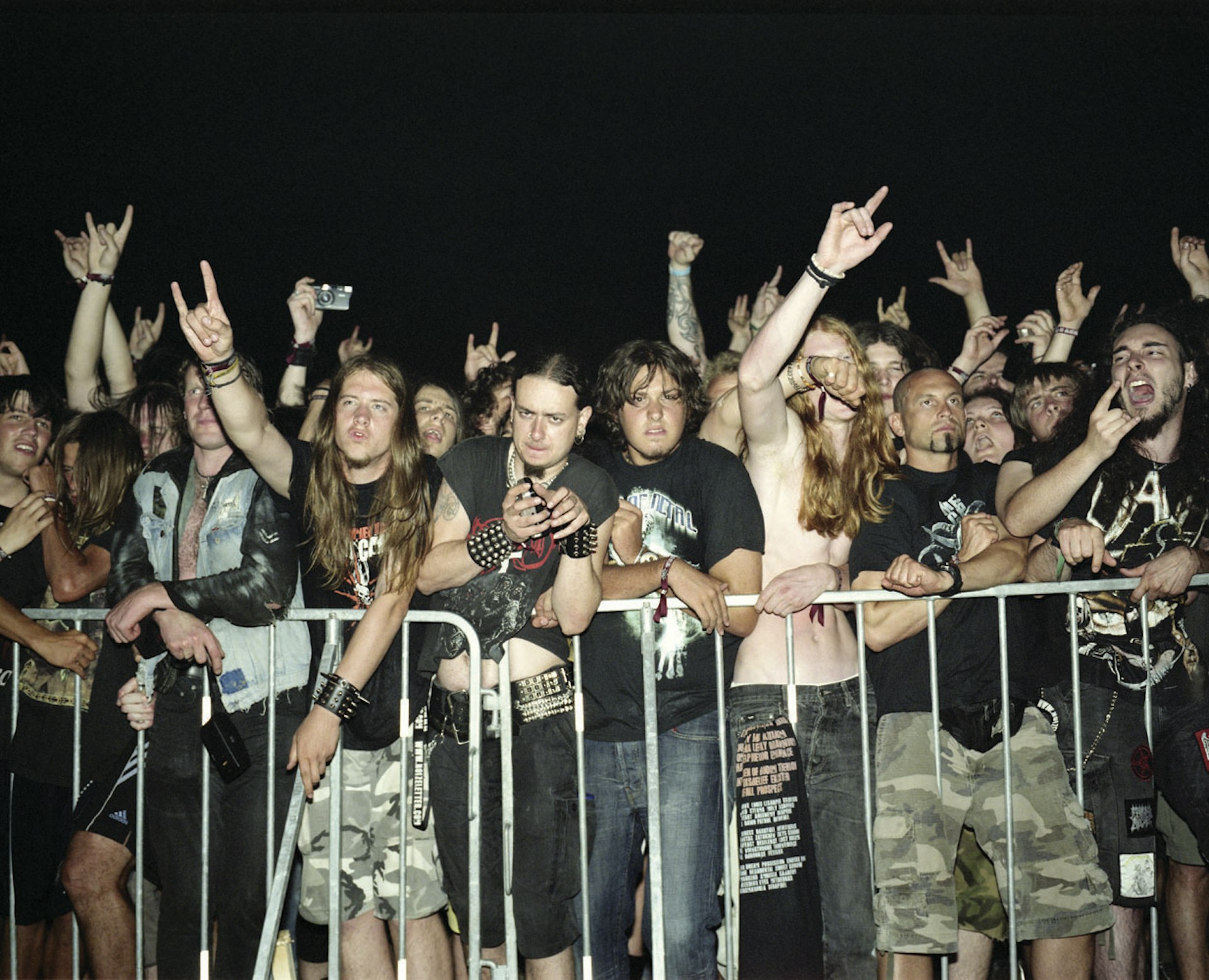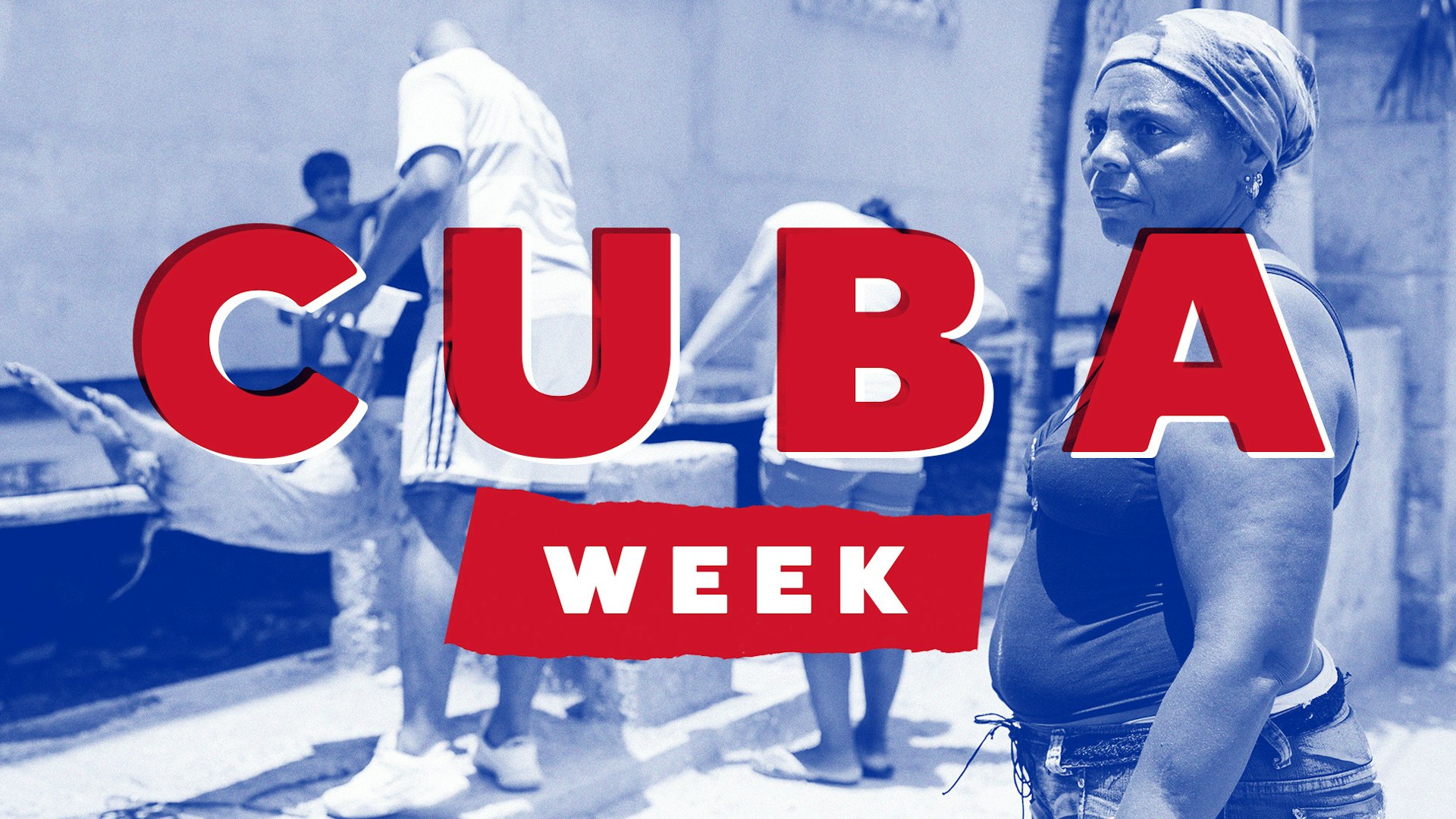
Cuba's first-generation entrepreneurs have mixed feelings about 'the changes'
- Text by Catherine Hickey
- Photography by Tom Law
A group of men huddle over a whole pig with a bloody spit piercing the carcass. They lift the dead animal above a DIY barbeque on the side of the road. One guy slathers a thick oily marinade onto the pig’s skin then throws gasoline onto the charcoal beneath and sets it alight. Thick grey smoke swirls towards the sky and the heat that radiates makes the scorching midday sun unbearable.
At that moment, Teresa, a curvaceous, larger-than-life lady wearing a bandana and tight clothing, appears with pink and white frosted cake and a bottle of white rum. She invites us to join their celebration. “It’s Mother’s Day so I’m not cooking – the boys are. I hate cooking,” she laughs.
A ‘for sale’ sign is displayed outside her house. “I want to move to Havana and open a cafeteria. There are more opportunities there, more people,” she says, determined.
“A restaurant?” I ask. “But you said you hate cooking?”
She laughs. “No, but I’ll do it for the money,” she says, rubbing her fingers together in gesture.
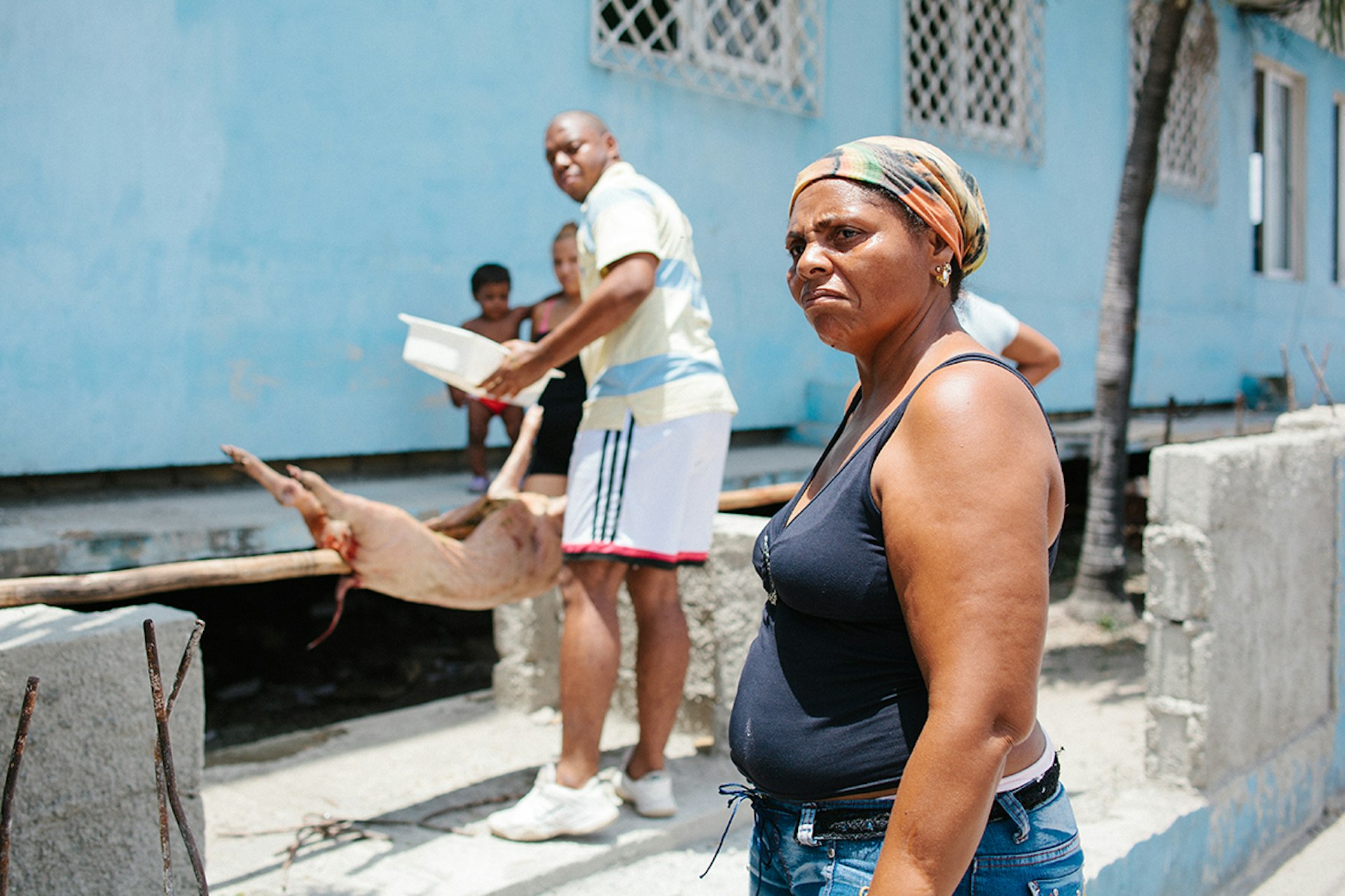
On December 17, 2014, Cuba and the United States announced that they would restore diplomatic relations for the first time in over fifty years following the Cuban Revolution in 1959 which saw Fidel Castro overthrow the US-backed Batista Government. Under President Batista’s authoritarian rule in the 1950s, Cuba had become a playground for America’s rich with gambling, prostitution and drugs readily available to the elite. There was huge inequality and corruption was widespread. There were also significant US investments across the country in mines, railways, public utilities and sugar.
After the revolution, Fidel reclaimed Cuban sovereignty by nationalising US assets, the ownership of which are still disputed today. This decision led to a trade embargo by the US against Cuba which is still in place, significantly limiting trade and travel between the US and Cuba. But since December 2014, many restrictions, including that preventing US citizens visiting Cuba, are starting to be relaxed spearheaded by President Obama who is keen to leave a legacy before he steps down in 2017.
However, what many don’t realise is that Cuba has been going through its own process of economic reform which, alongside developments with the US, is pulling the country through a period of deep change. When Raúl Castro became President in 2008 following nearly fifty years of rule by his brother, Fidel, he set forth a process of economic reform to address the weaknesses and inefficiencies in the socialist planned economy, dominated by state-run enterprises that the government oversees. As part of this process, the Cuban government in 2010 began to legalise some forms of self-employment including taxi driving, selling food, opening a guesthouse and hairdressing. Since then, the number of cuentapropistas, or self-employed people, has been rising steadily.
Most Cubans have state jobs earning less than US$20 a month regardless of whether they are a doctor or a cleaner, but many, like Teresa, have seen an opportunity to make more money by going it on their own, providing services to tourists. A waiter, for example, can earn as much in a day in tips as an engineer working for the government earns in a month. The number of US visitors is already growing due to policy changes that have authorised travel for educational, religious and professional activities among others, and discussions are underway to allow US citizens to travel even more freely. With tourist numbers to the island increasing dramatically, new opportunities are opening up for Cubans.
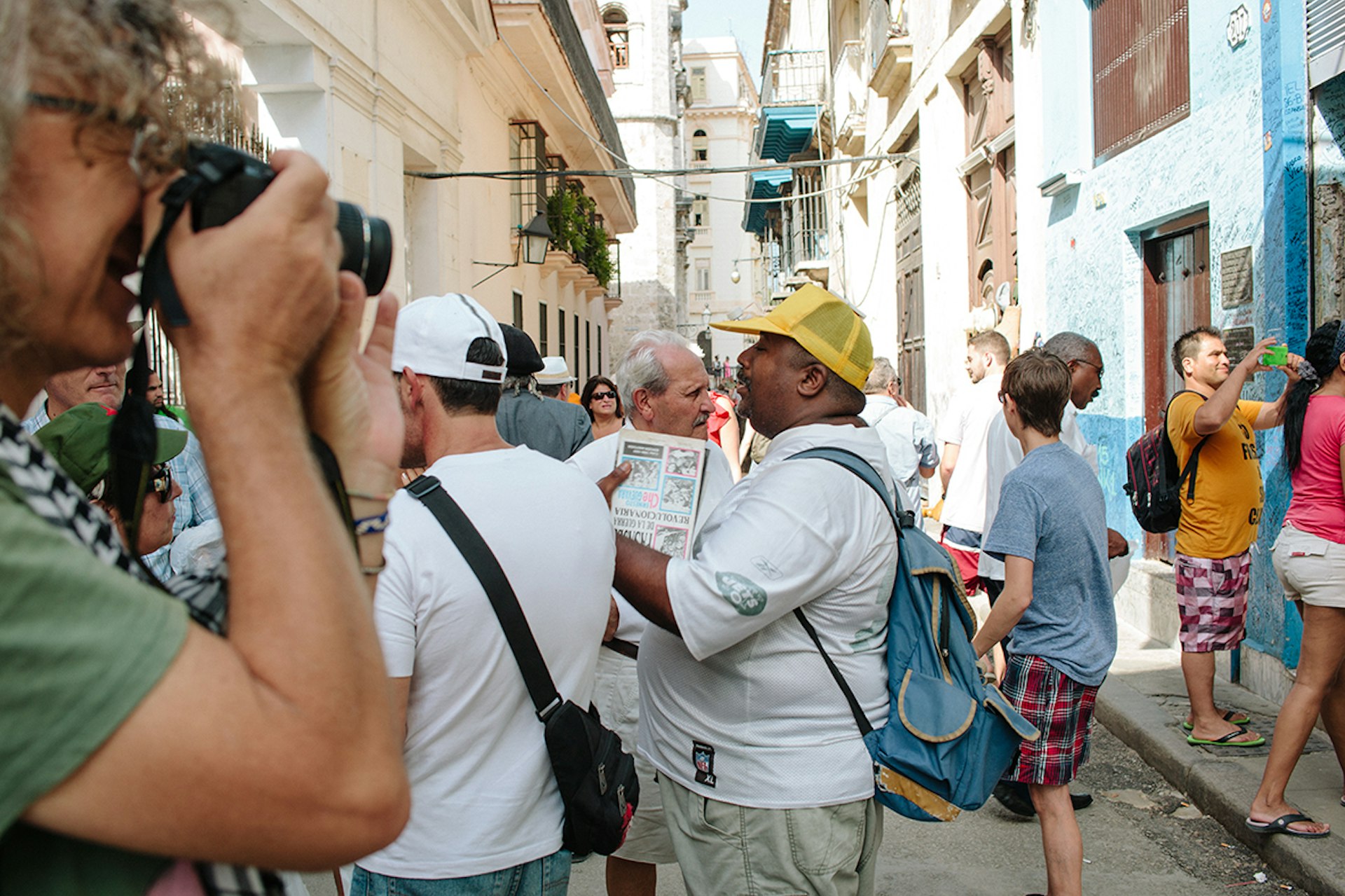
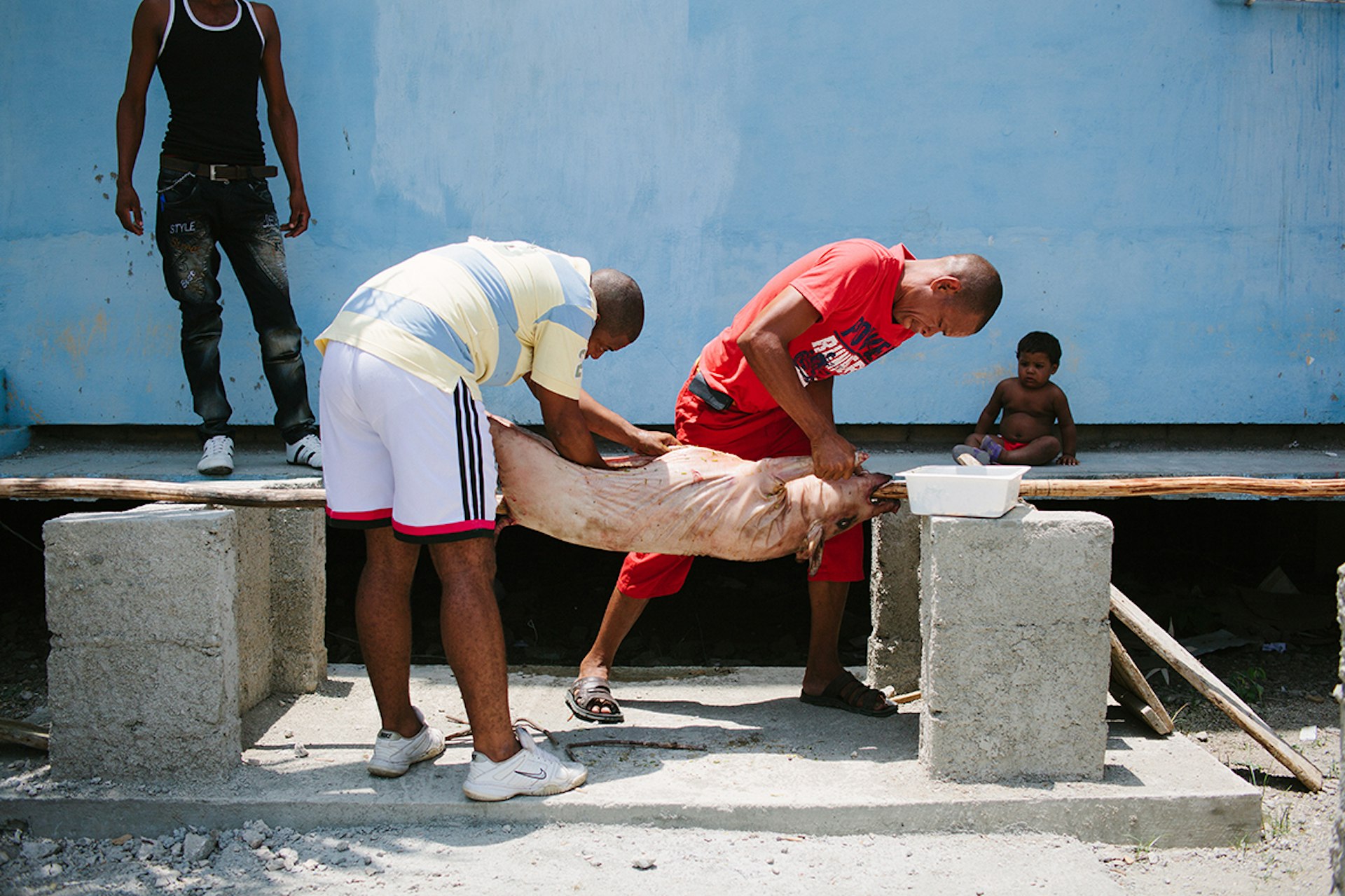
Teresa is riding a wave of change that’s redefining Cuba: entrepreneurship. She lives in the east, over 500 miles from Havana, in the country’s second largest city Santiago de Cuba. The eastern region, the Oriente, is sometimes referred to as the revolutionary heartland of the island: Fidel Castro built support for the revolution among the rural farmers there.
As it gets dark, she carries her eighteen-month-old grandson, Christian, into the house leaving the men in the family to the hog roast and rum while she prepares the salads. “I’ve been through
so much. I got divorced last year and lost lots of weight. I was like a stick. I’m much better now but I want to move to Havana and start anew.” The prospect of starting a business in the capital has provided Teresa with a newfound hope.
Teresa’s son, Rubén, however, has a different view. He is about to qualify as a doctor. All doctors are employed by the Cuban state and earn around US$20 per month. Rubén knows that as a private doctor in another country, he could be earning a vastly higher salary. But in a society built on revolutionary ideals designed to tackle a once-soaring social inequality, Rubén like many Cubans is also wary of the potential pitfalls of free-market change.
“As a professional, I’d be in favour of privatisation, but as a Cuban, I’m not. The current system is good. Everyone is equal, society protects the weak and vulnerable, there’s a safety net. Without that… no, no, that’s not fair.”
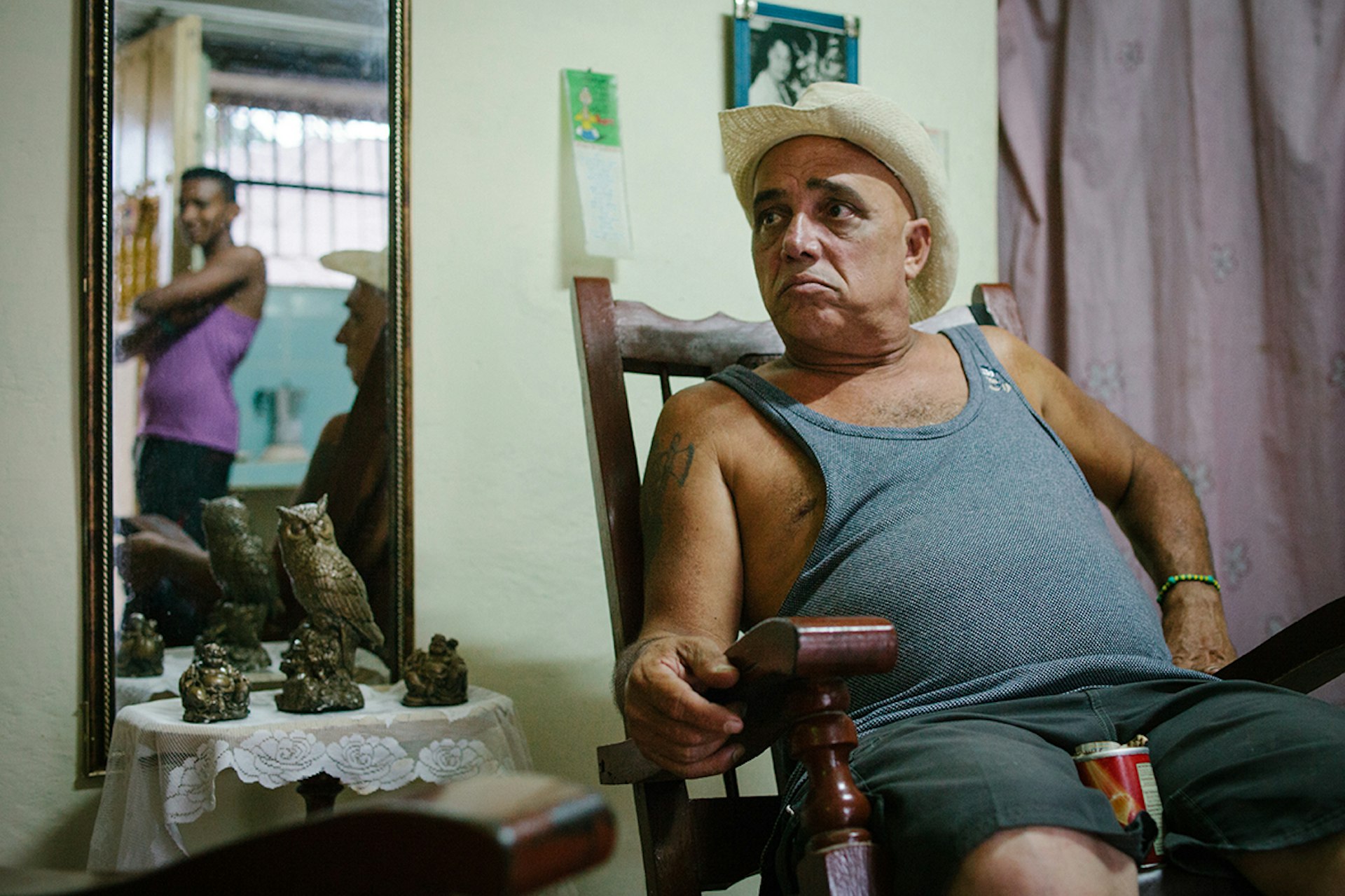
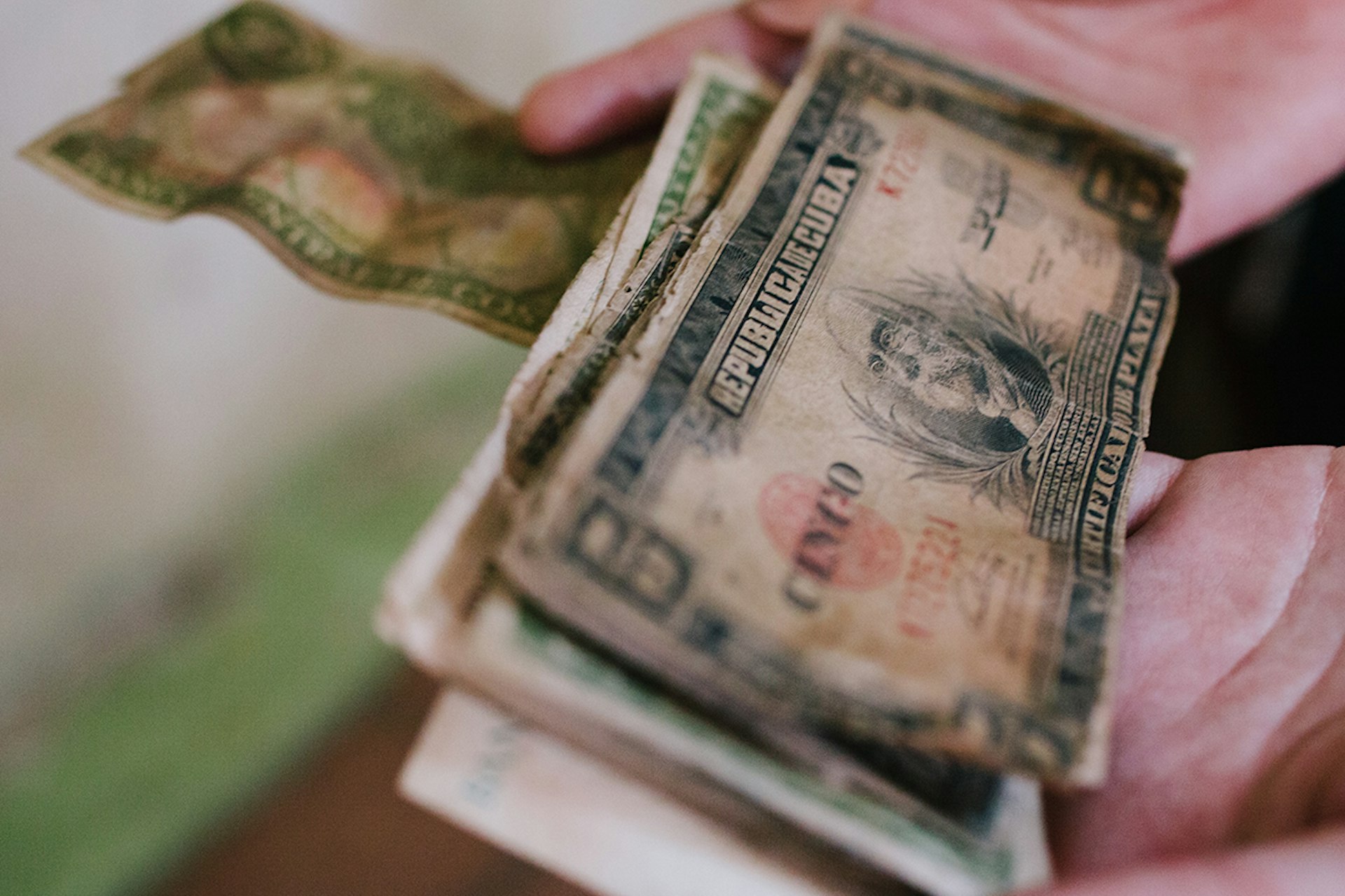
On the other side of the city is a mural of a red eye. ‘I’m watching you,’ read the words below. A man stands in a doorway to a house behind metal bars. “Do you like it?” he asks. “I painted it,” he says, grinning.
Ramón is a security guard at the local library but will leave his job when he opens a street café in the next couple of months. “I’ve been planning this for three years. I’ll earn more money,” he says. He has gradually been preparing his house and has put in a small window where he will sell fast food and drinks, but he still needs to buy a freezer which costs US$400, over a year’s state salary. He is saving up and will ask friends and family to help out.
Ramón sits in his rocking chair showing off his collection of old European bank notes that he has accumulated over the years speaking with foreign tourists. He dreams of travelling abroad. Cubans have had difficulty going anywhere since 1961, when the government restricted travel to try and slow the migration of Cubans after the revolution. But in 2012 the government made it easier for Cubans to travel abroad by lifting requirements to obtain an exit visa and a letter of invitation from the destination country. In spite of all of this, Ramón has his doubts about whether this development will have a real impact on his life.
“Visiting another country is still difficult as you need a visa for most places apart from Russia, but I don’t want to go there,” he explains. “I want to go to the US, Canada, Europe, but even if I
earn enough money from the new café for a flight, I doubt I’ll ever be able to go.”
Nevertheless, the number of Cubans travelling abroad has been increasing since 2012, and the growing number of young highly educated Cubans leaving the island, disillusioned with the lack of opportunity, has provoked concerns of a brain drain.
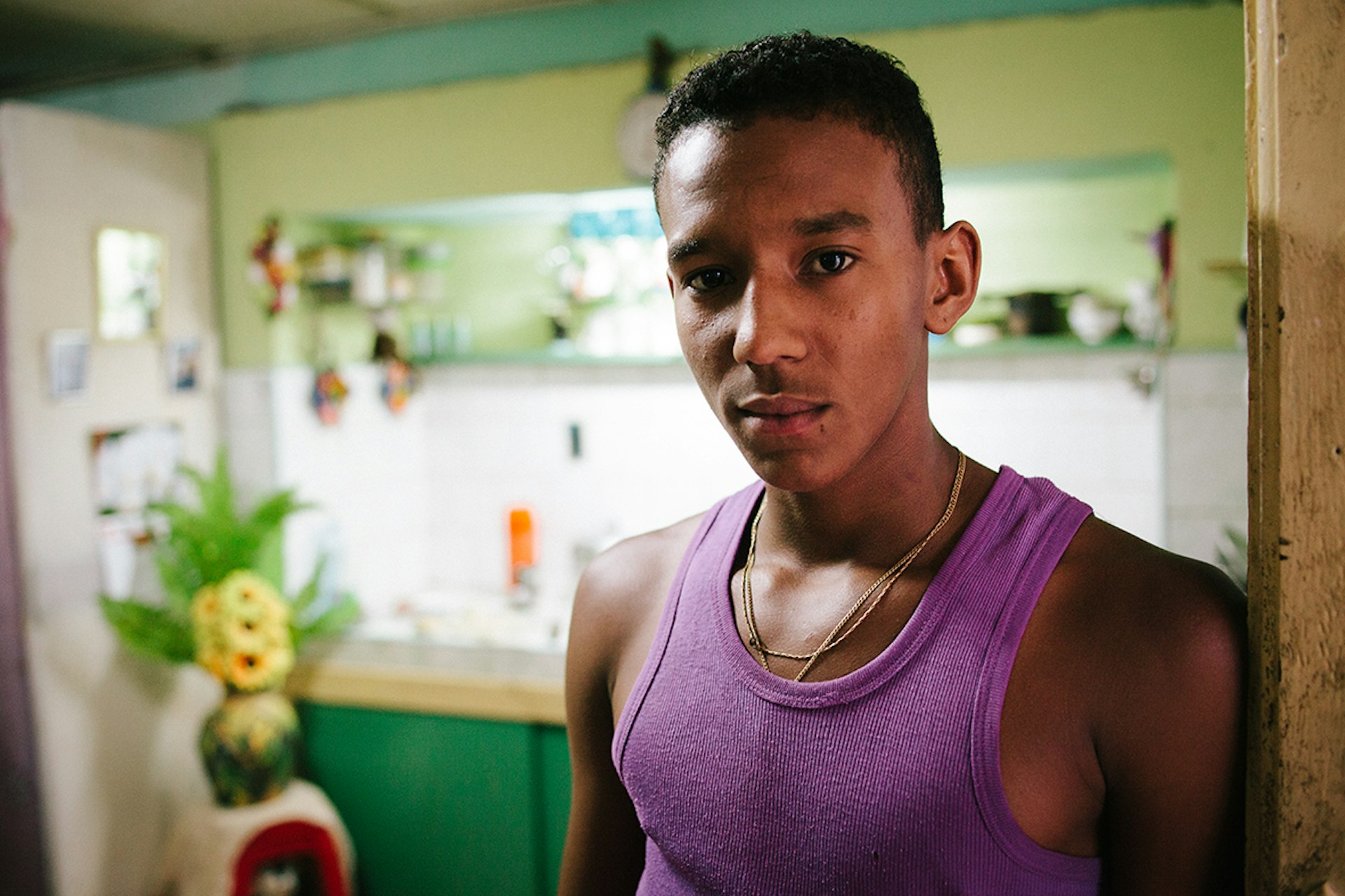
Ramón’s son, Julio, hovers by the doorway. He is seventeen and a dancer. “I love dancing, but I really want to be a famous actor and travel around the world,” he says. Ramón doesn’t share Julio’s enthusiasm: “To become famous abroad, you would need to be from the right sort of family, you know, support the revolution. The government would need to trust you,” his dad warns.
A cockroach scuttles across the floor and Julio stamps hard, killing it. “I’m learning English at school but I prefer Italian and am doing a course in the evenings. I’ll travel to the UK and Italy
when I’m older,” Julio says defiantly.
The worldview among young Cubans is changing and it’s radically different to that of the older generation. For Julio, there is a sense that anything is possible. This outlook is shared by many young Cubans who, unlike their elders, have not experienced the past challenges of Cuba’s socialist experiment such as severe economic crises and food shortages. The older generation may be weary of their hardship but want to see the revolution triumph to make their sacrifice worthwhile. The young, however, are increasingly disengaged from politics and simply want a better life.
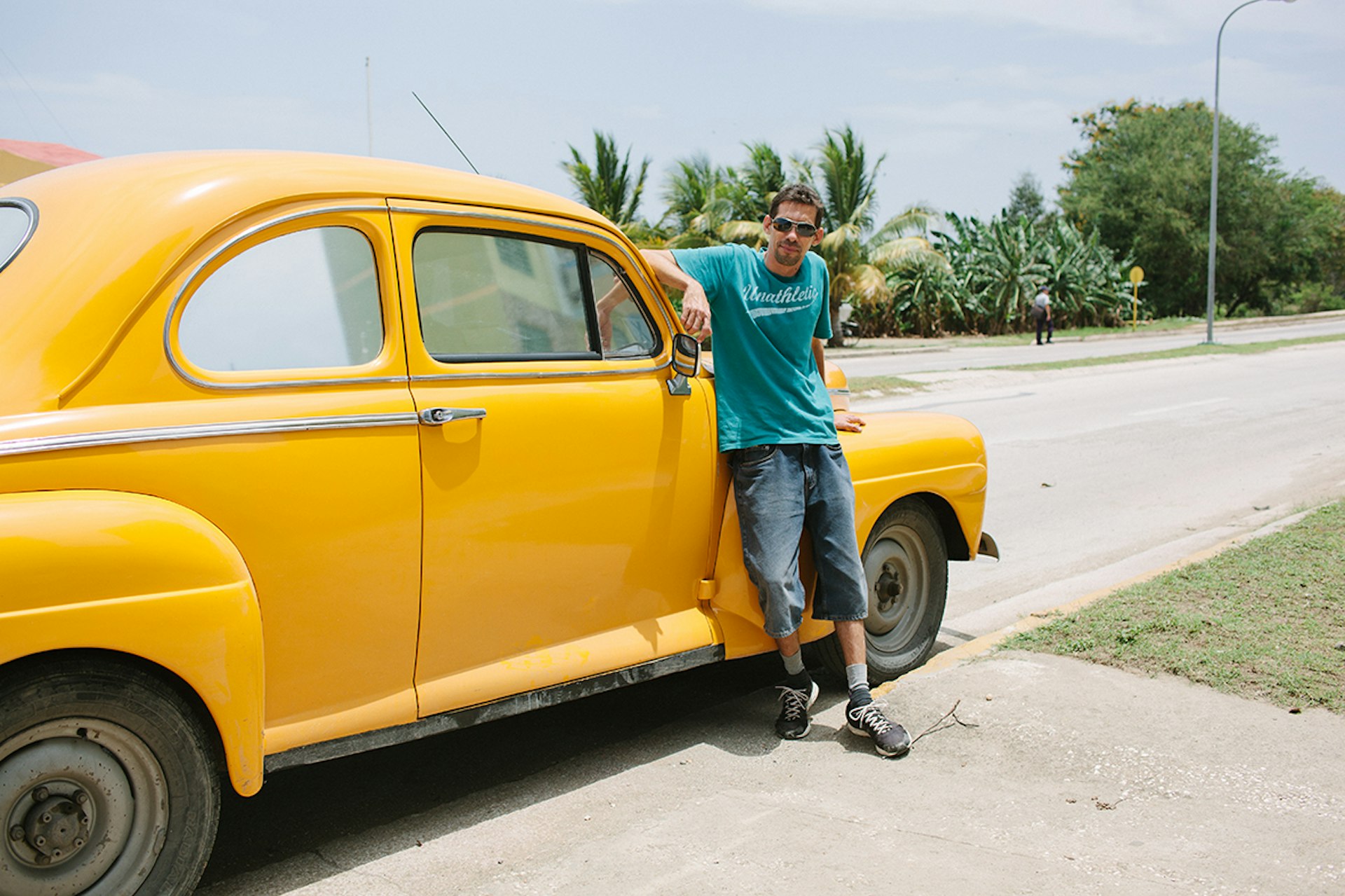
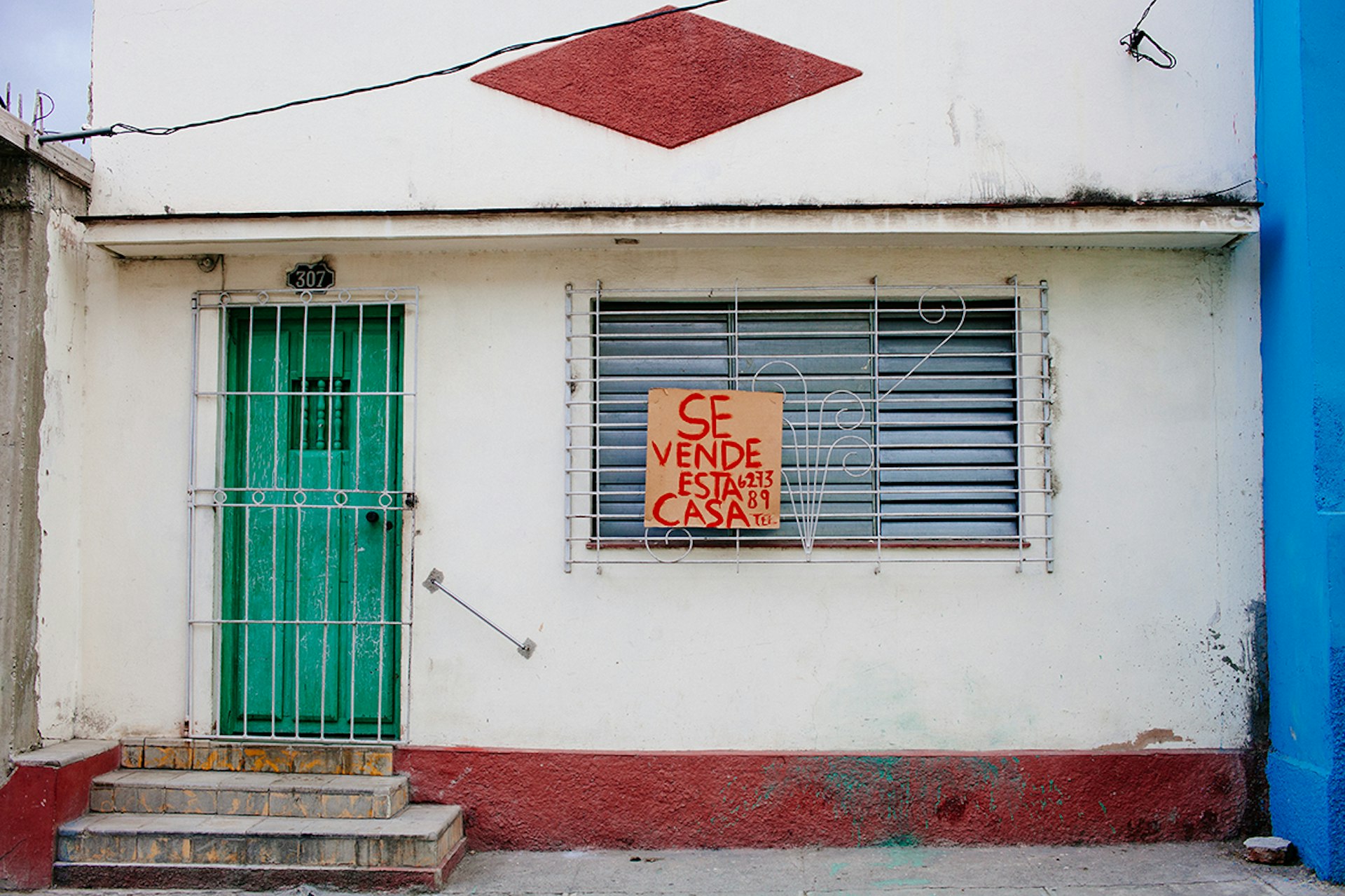
It’s not just in the food industry that Cubans are starting their own businesses: private taxi drivers are also growing in huge numbers.
Ezequiel is a taxi driver in Holguin. After haggling over the cost of a forty-five-minute ride – many taxi drivers charge tourists more than locals – he is initially quiet but soon starts to feel at ease as we drive out of the city.
He began working as a chauffeur in a state taxi company after graduating, but now self-employed, he earns more driving tourists to the beach. He is grateful for the opportunities that tourism offers but is also worried about the negative aspects that come with it. “Tourists are pestered on the streets by jineteros [hustlers] and are scammed more and more these days by Cubans looking to make a quick buck. There are also more prostitutes. This affects us all, it affects our country’s reputation. People won’t trust us and they won’t come back,” he says.
Ezequiel graduated as an accountant before he became a taxi driver and most taxi drivers seem to have another profession. As education is free in Cuba, he says that he didn’t think carefully about choosing a degree at university. With an air of nonchalance, he says that in hindsight he would have liked to study IT, but adds that there was little modern technology back then. Due to the US embargo, the availability of technology has been limited and technological infrastructure is severely underinvested. The internet is also tightly controlled by the government and most Cubans still do not have access.
This is all starting to change, however: you see some Cubans with the latest iPhones, mostly sent from their relatives in the US. The government has also increased the number of internet cafes and opened public wifi areas for Cubans, although the connection is very slow.
“I’d like to create apps for phones, I think it’s cool,” Ezequiel shrugs.
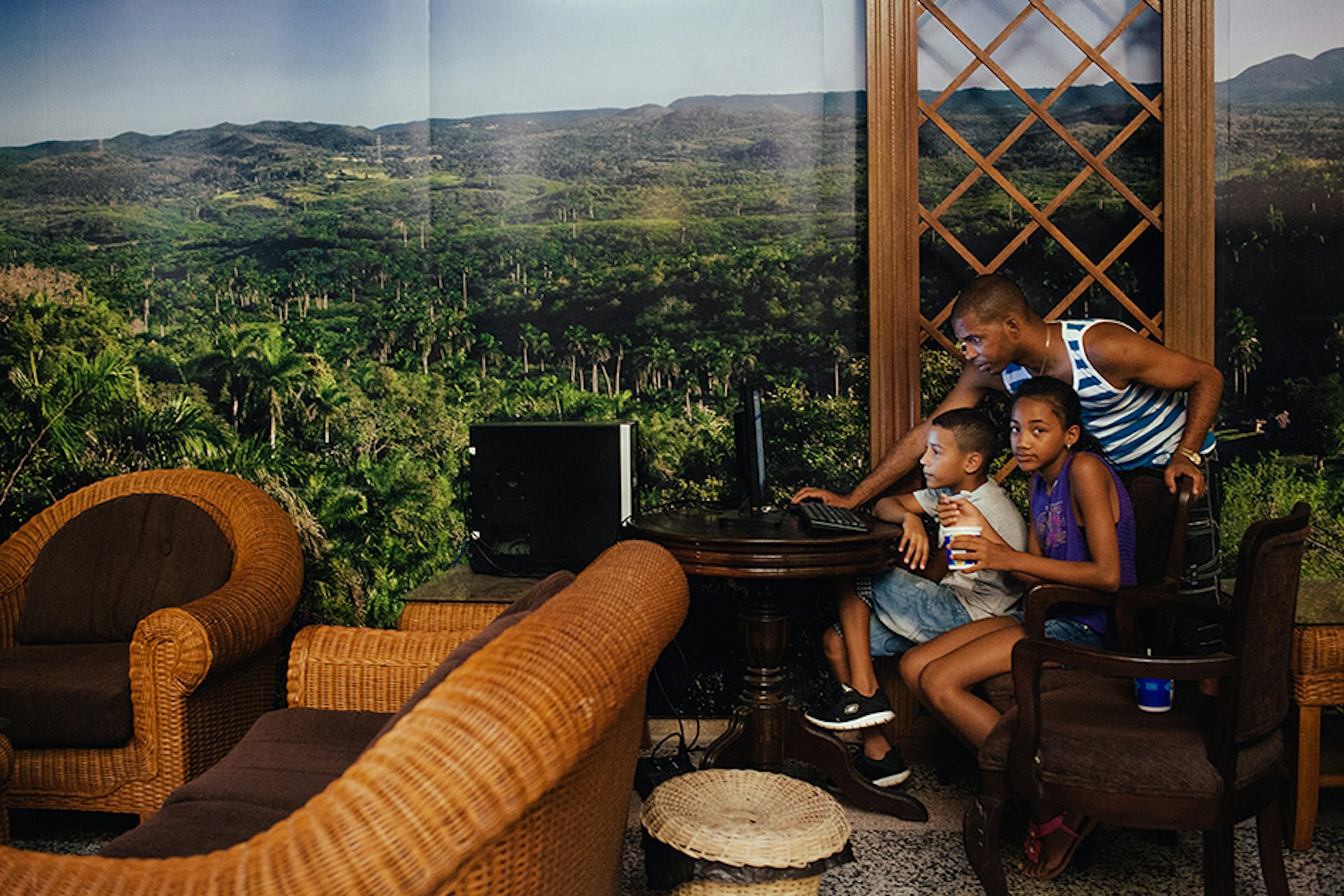
In Santa Clara, four hours from Havana, an unusual sign hangs above an entrance off the street, leading into a dark, bare room with painted green walls and florescent lights over the counter displaying video games. Alejandro opened the shop two months earlier, just as it became legal to sell video games. “My shop has official authorisation, we’re allowed to sell video games, but there are lots of other shops around without a licence,” says Alejandro. There had previously been a ban on Cubans privately selling imported goods and the government was also concerned that video games promoted “mediocrity, pseudo culture and banality”.
“Most people have old consoles such as PS2 and Xbox 360, not the most recent ones. It would be a dream to play on the latest playstation,” he says. “I’ve played almost all of the games I sell in the shop. My favourite is Mortal Kombat, but there’s also Grand Theft Auto and Far Cry,” he continues, as he flicks through the catalogue of games on the glass counter.
The original discs are difficult to get hold of so he mainly sells copies. Usually the originals come from Havana where they have been downloaded from the internet and are passed down to other
Cuban cities. “You need to chip your console to play downloaded games. We can do that here. I’ve taught myself how to do it from Youtube tutorials,” he says proudly.
Alejandro’s video game shop is a prime example of how Cubans have found ways to get around the lack of availability of goods due to the embargo. It is common to see Nike trainers, Ray-Ban sunglasses and iPhones, usually brought over by Cuban relatives from the US. Ultimately, most young Cubans just want access to material goods and the internet that so many outside of Cuba enjoy.
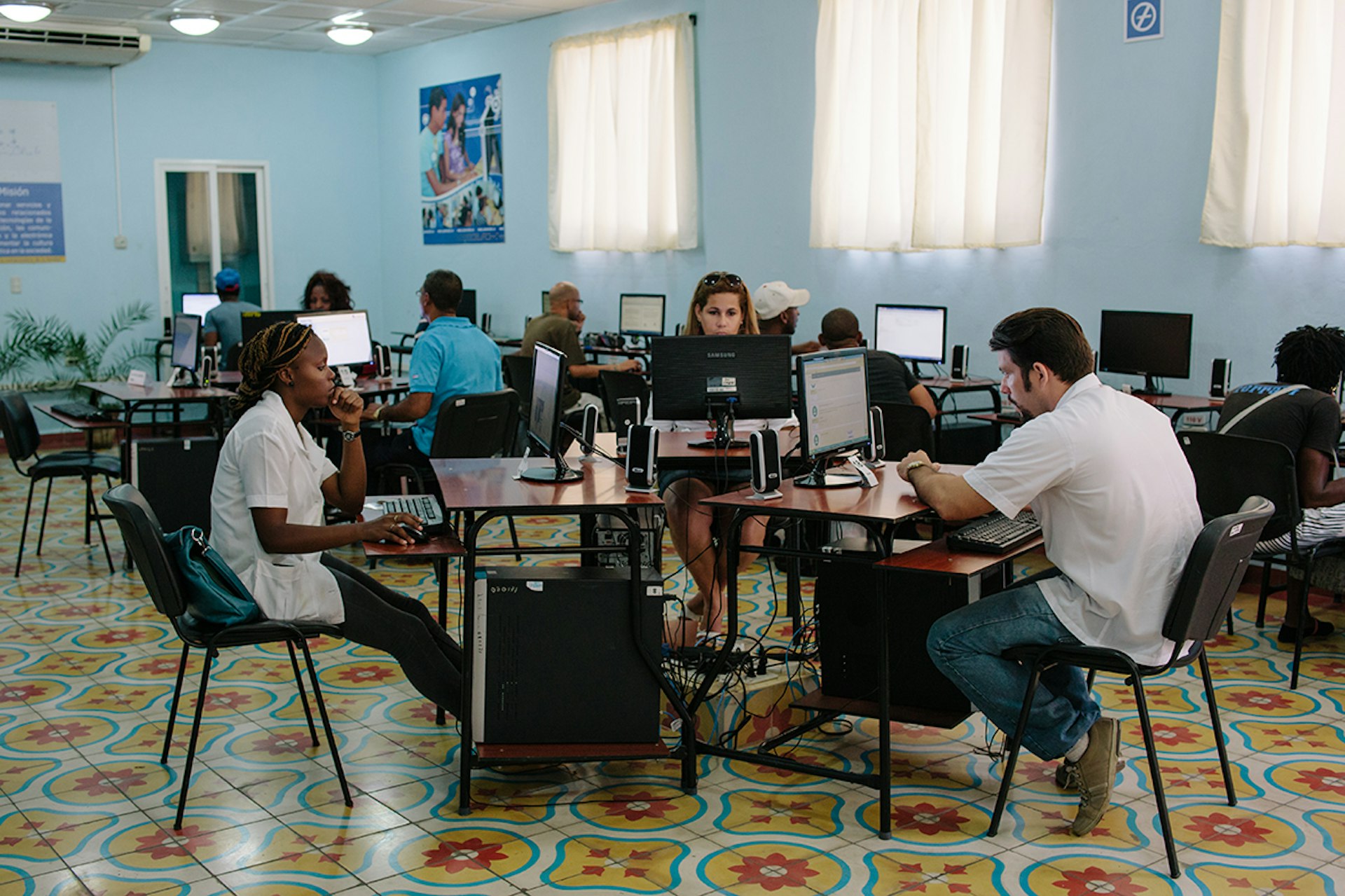
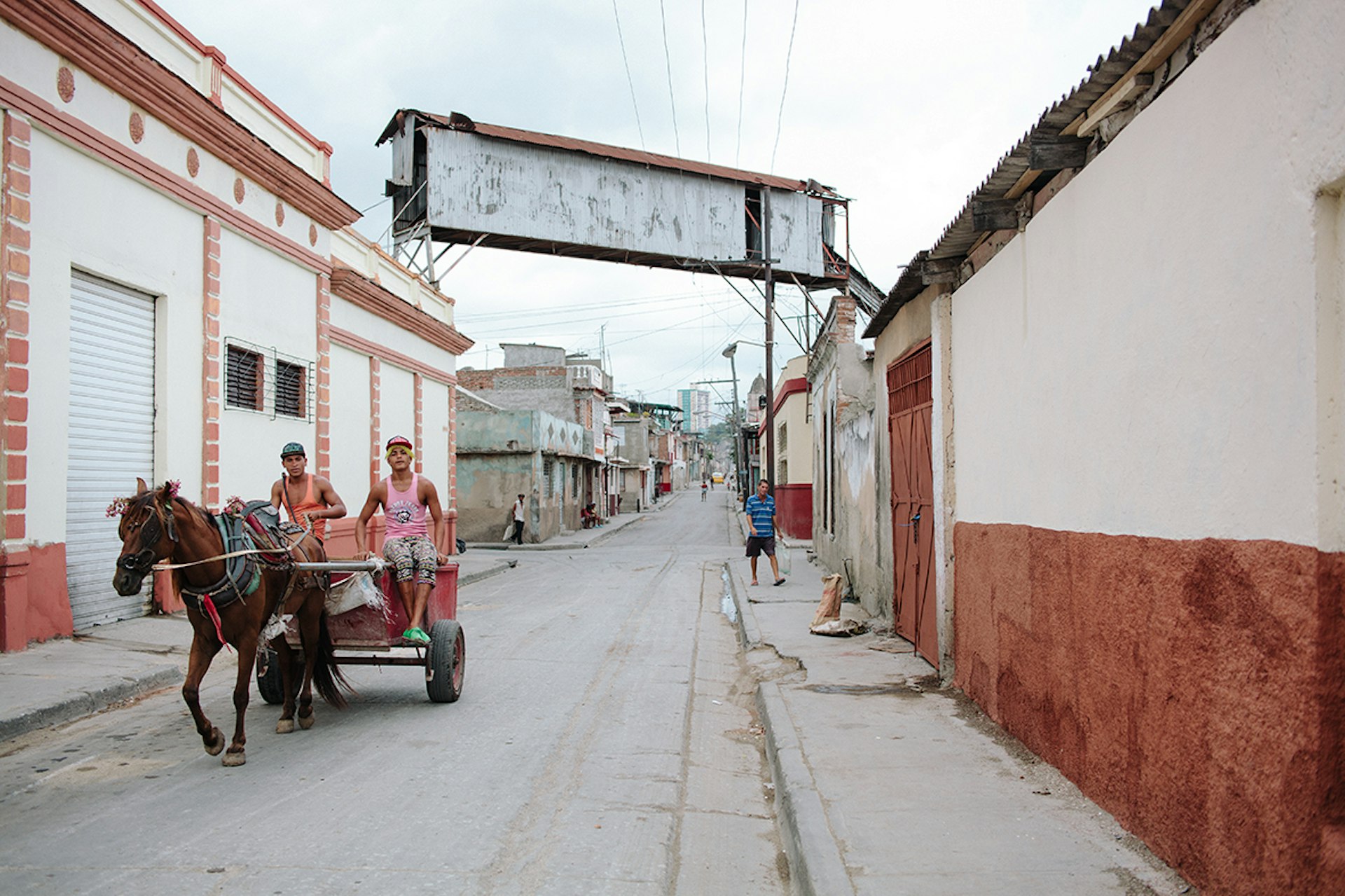
Although many positive changes have taken place since 2008 under Raúl Castro, progress has been slow. This is no accident. President Castro himself said that the reform process “is proceeding without haste, so that we don’t make new mistakes”. The government is proceeding cautiously to minimise the negative impact of economic reform and maintain social order, but the pace of change is frustrating to many who feel they have been waiting for too long.
In the end it will be people like Alejandro – entrepreneurs with initiative and new ideas – that will stimulate Cuba’s economy, create opportunities and provide a new sense of hope and possibility. While entrepreneurs are still only legal in certain professions, they are growing in number and are clearly here to stay. Over time, it will be them that change the face of Cuba. As Alejandro says: “Cuba is changing, but it is a hopeful future.”
Enjoyed this article? Like Huck on Facebook and Twitter for regular updates on our Cuba Week editorial takeover.
